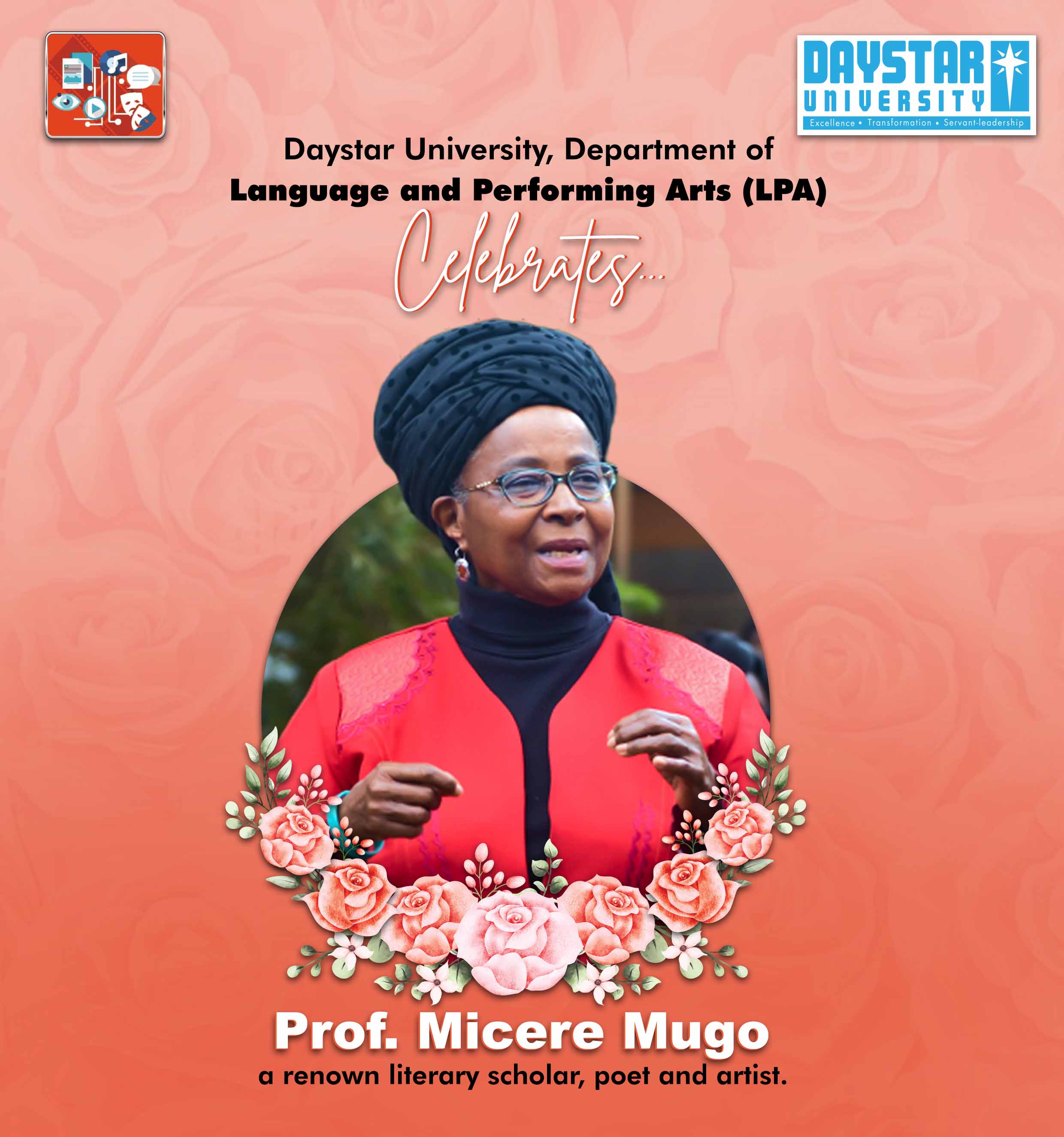
By Prof. Wandia Njoya
As scholars of literature and language, we join the rest of the academic, literary and larger Kenyan community in mourning the passing of Micere Githae Mugo last week. Mugo was professor emeritus of literature at Syracuse University in the US, where she spent last part of her active academic career in the department of African American studies.
Prof. Mugo was also a literary scholar, poet and artist who wrote plays, poems and essays. She popularized the term “orature”, which combined the literary art with oral performance. In almost every lecture Prof. Mugo gave, she included orature, which entailed performing one of her poems and inviting the audience to repeat the refrain that was part of the poem.
However, using the word “mourning” feels strange when it comes to Prof. Mugo. That was because all her life and her work were a celebration of African humanity, even in the face of the difficult circumstances which she faced. In the 1970s, Prof. Mugo became the first woman to become dean, when she was elected by faculty of the University of Nairobi’s School of Arts, after a spirited campaign of herself and her colleagues in an environment where women were not expected to take leadership. She was arrested for her political views and eventually fled into exile with her two daughters. She initially went to Zimbabwe, where she was given citizenship by the newly independent state. She eventually found her way to the US where she taught for the rest of her life.
Despite these challenges, Prof. Mugo’s art and philosophy were dominated by the motifs of song and celebration of humanity. Her poetry spoke of African cultures in terms of songs. In one poem, she famously asked “Where are our mother’s songs?” While in another she encouraged African sisters and brothers to sing and dance. The play which she co-wrote with Ngugi wa Thiong’o memorialized not only Dedan Kimathi, but all the Kenyan people who struggled for freedom. She took her exile in stride by sang praise for the African peoples across the world. But most of all, she called for the celebration of humanity, or “Utu,” where boundaries and nationalities became secondary to being human. In 2015, during one of her regular visits to Kenya, she gave a lecture in which she declared that “I extend my home to any human being of any origin who looks in my eye and sees themselves.”
That message remained constant even after she was compelled to leave Kenya. Everywhere she went, she considered it home. She wrote plays and songs to celebrate the Zimbabwe people, and in the US, she was actively involved in African American struggles. In the same 2015 lecture in Kenya, she said that “if you choose the path of struggle, don't romanticize home; you must have the courage to make new homes, new roots.”
That is why the people celebrating Prof. Mugo’s life are drawn from all over the world. In her lifetime, Prof. Mugo received accolades in Tanzania, Zimbabwe and the US, not just in Kenya. Her students hail from African communities in the continent and the diaspora, and wherever they go, her impact is felt far and wide. In our literature classes, we teach her poetry to show students that we can imagine a better world if only we see each other as human beings. Therefore, even though Micere Mugo has left us, we still hear the beautiful words she wrote and spoke, urging us to “sing and dance, be soulful, be whole.”
The author Prof. Wandia Njoya, is Associate Professor in the Department of Language and Performing Arts (LPA), at Daystar University.